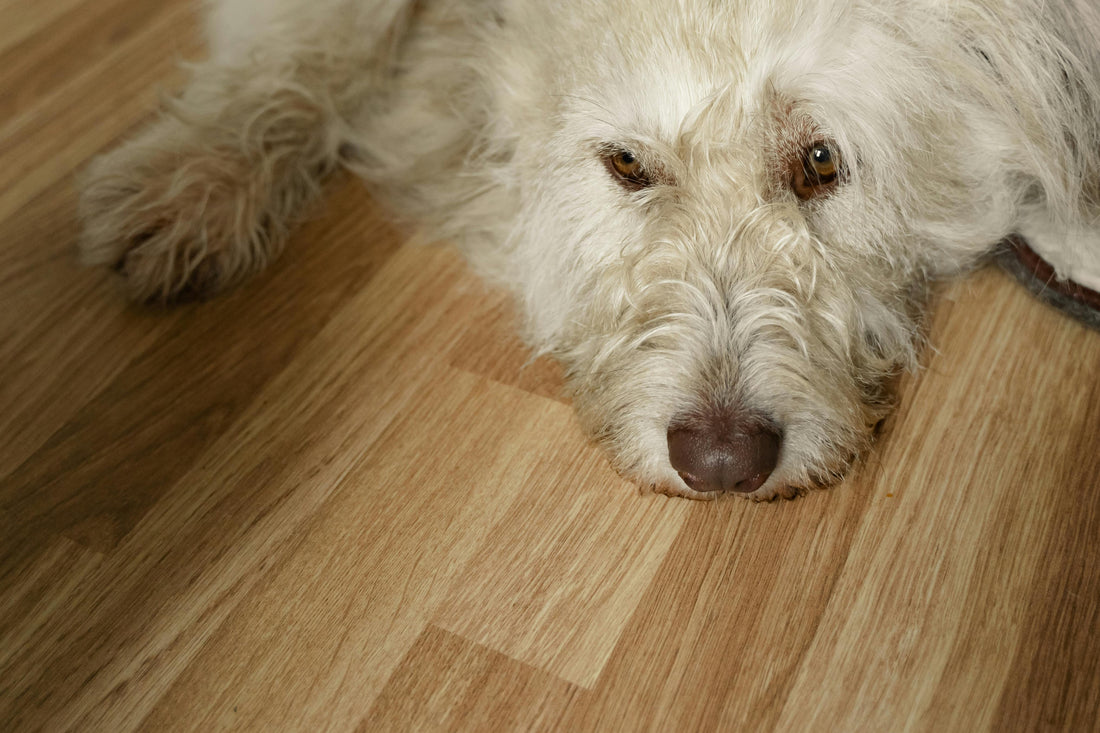Is Your Dog Bored? Here's How to Tell

Vet Reviewed by Dr. Jacob Klos, DVM

Can Dogs Get Bored?
Absolutely. While dogs may not scroll Instagram or binge-watch shows like we do, they still need mental stimulation and engagement. Without it, they can quickly become bored—and that boredom often leads to behaviors that look like stubbornness, anxiety, or even aggression.
Common Signs of Dog Boredom
Every dog expresses boredom differently, but here are some of the most common clues to watch for:
- Excessive barking or whining – Especially if it seems to happen “for no reason.”
- Destructive chewing – Shoes, furniture, baseboards… nothing’s safe.
- Zoomies or hyperactivity – Especially during times they’re usually calm.
- Pacing or restlessness – Can’t settle down, even when you’re home.
- Attention-seeking behavior – Pawing, nudging, or barking for interaction.
- Lethargy or disinterest – The opposite of hyper, your dog may seem checked out or “blah.”
While these signs can overlap with anxiety or medical issues, they’re often rooted in simple under-stimulation—especially in young or high-energy breeds.
Why Boredom Matters
Bored dogs aren’t just inconvenient—they can become stressed or even depressed. Mental stimulation is just as important as physical exercise for your pup’s health and happiness.
Without an outlet, dogs will invent their own entertainment… and it’s rarely something you’ll be thrilled about (see: shredded pillows).
How to Keep Your Dog Engaged
You don’t need to entertain your dog 24/7—but a few intentional changes can make a huge difference:
- Rotate toys – Don’t leave all your dog’s toys out at once. Keep a few “new” ones in rotation each week.
- Sniff walks – Let your dog sniff and explore. Mental stimulation is just as tiring as a long jog.
- Interactive feeders – Puzzle toys and slow feeders turn mealtime into a game.
- Training sessions – Just 5–10 minutes of daily training gives your dog a mental workout and builds your bond.
- Safe chews or licks – Long-lasting chews or stuffed lick mats can keep your dog focused and calm.
Mix up your routine. Even small changes—like a new walking route or a different playtime schedule—can help reduce boredom and give your dog a renewed sense of purpose.
Final Thoughts
Dogs are naturally curious, energetic, and eager to interact. When we recognize boredom as a real emotional need—not just a behavior problem—we open the door to a happier, healthier life for our pups.
So the next time your dog starts barking at a shadow or chewing your favorite slipper, take a moment to ask: “Could they just need something to do?”
Chances are, a little engagement can go a long way.









